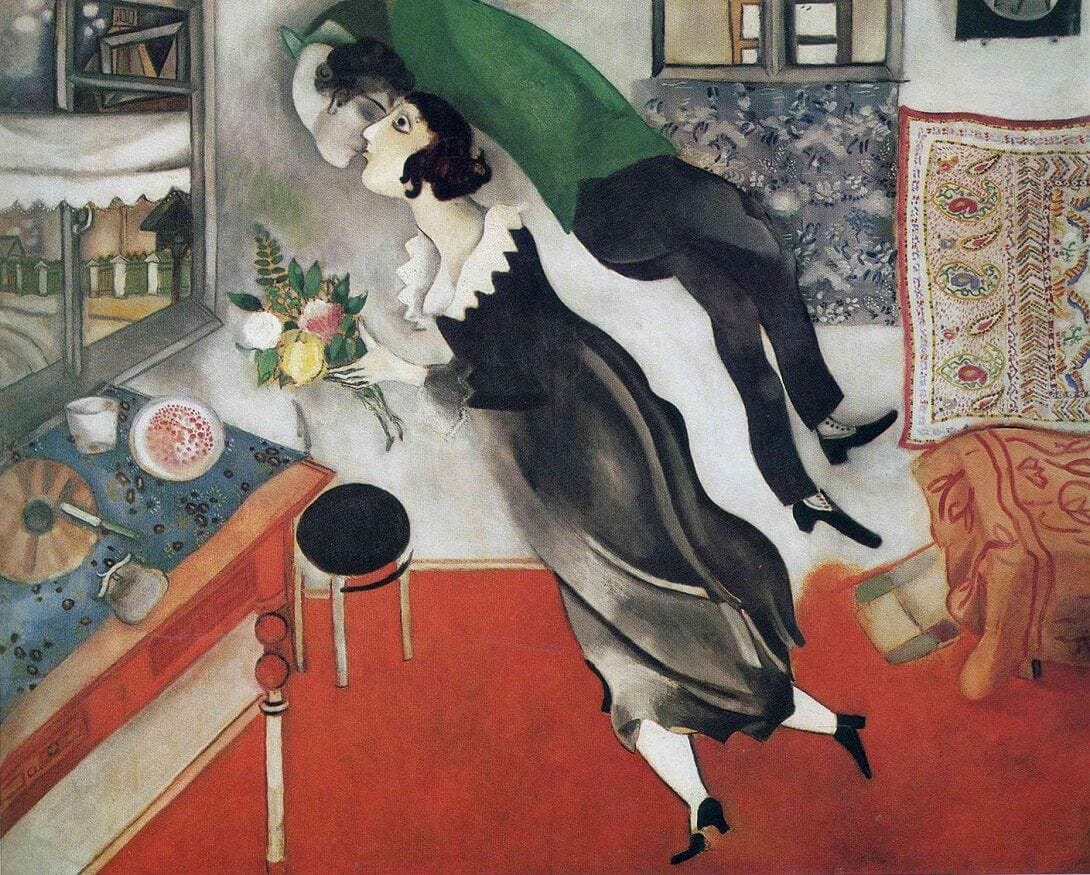Brain Food #725
The language of love (part II)
Thoughts of the day
Romantic love in real life is not like love in film. There is no well-thought-out script to follow, no characters to play but ourselves.
The poem After the Movie features two friends arguing about the definition of romantic love, as witnessed in the film they have just watched. But in truth, the main form of love here explored here is philia, the love between the friends themselves. By the end, their words begin to fail them, and some distance is created through the chasm between thoughts and sentences.
Language can create love, but it can also disintegrate it. Reading a poem about love is like love itself, where the words are not always straightforward, meanings have multitudes, and there is no dichotomy of right or wrong in the interpretation.
British psychotherapist Susie Orbach claims there is even some poetry to be found in psychoanalysis, not only in the exchange of words between the analyst and the analysand, but also in the rhythm and flow with which they come out, and in what is not said in the space in-between. That is also why love is about asking the right questions but also, and perhaps more importantly, it is an act of deep listening.
If we only live in our own heads, language remains our imperfect means to connect to the world. Love, like poetry, even like therapy, is a constant act of interpretation and layering of insights, so we can build a narrative together.
After the Movie
by Marie Howe
My friend Michael and I are walking home arguing about the movie.
He says that he believes a person can love someone
and still be able to murder that person.
I say, No, that’s not love. That’s attachment.
Michael says, No, that’s love. You can love someone, then come to a day
when you’re forced to think “it’s him or me”
think “me” and kill him.
I say, Then it’s not love anymore.
Michael says, It was love up to then though.
I say, Maybe we mean different things by the same word.
Michael says, Humans are complicated: love can exist even in the murderous heart.
I say that what he might mean by love is desire.
Love is not a feeling, I say. And Michael says, Then what is it?
We’re walking along West 16th Street—a clear unclouded night—and I hear my voice
repeating what I used to say to my husband: Love is action, I used to say to him.
Simone Weil says that when you really love you are able to look at someone you want to eat and not eat them.
Janis Joplin says, take another little piece of my heart now baby.
Meister Eckhardt says that as long as we love images we are doomed to live in purgatory.
Michael and I stand on the corner of 6th Avenue saying goodnight.
I can’t drink enough of the tangerine spritzer I’ve just bought—
again and again I bring the cold can to my mouth and suck the stuff from
the hole the flip top made.
What are you doing tomorrow? Michael says.
But what I think he’s saying is “You are too strict. You are a nun.”
Then I think, Do I love Michael enough to allow him to think these things of me even if he’s not thinking them?
Above Manhattan, the moon wanes, and the sky turns clearer and colder.
Although the days, after the solstice, have started to lengthen,
we both know the winter has only begun.
Thank you for reading today’s Brain Food. Brain Food is a short daily newsletter that aims to make you think every day, without taking up too much of your time. If you know someone who would like it, why not forward it to them? And if you have just come across Brain Food, you can subscribe to it below:
For longer thoughts and Brain Food highlights from the archives, visit Medium.

